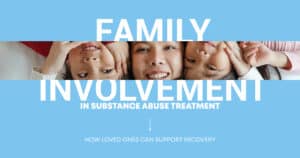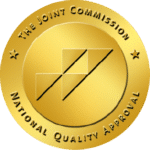Introduction
When a loved one dies, it’s normal to grieve. The grief process can take weeks, months, or years as you come to terms with your loss. But if the grief process doesn’t end after six months, you may be experiencing prolonged grief disorder (PGD), sometimes called Complicated Grief.
PGD is a fairly common condition that affects about 5% of the population. It’s marked by intense and constant feelings of sadness, anger and guilt that last longer than expected. In addition to these emotional symptoms, people with prolonged grief disorder may also experience physical symptoms like headaches or stomach aches.
In this article, we’ll explore what PGD is, how it’s diagnosed and what treatment options are available if you think you might have PGD.
Prolonged Grief Disorder (PGD) is a real mental health condition that affects many people after the death of a loved one.
It’s important to know that this diagnosis isn’t just for those who are grieving for a long time. It can also be given to those who have experienced other losses in their life such as divorce and job loss.
According to the DSM-V, to receive a diagnosis of prolonged grief disorder as an adult, the loss must have occurred at least a year ago — and for children and adolescents, at least 6 months ago. Additionally, the individual must have experienced at least three of the following symptoms nearly every day for the last month or longer:
- Disrupted identity
- A feeling of disbelief about the death
- Avoiding reminders that the individual has passed
- Intense emotional pain directly related to the loss
- Trouble getting back to normal life
- Numbness
- Feeling that life is meaningless
- Loneliness and detachment from others
PGD is diagnosed when your grief lasts longer than what’s considered normal.
Normal grief lasts up to six months, but PGD can last for years. How do you know if your loved one’s death has affected you in a way that requires professional help? If any of the following apply to you, it may be time to get some help:
- You’ve been feeling sad or depressed for more than two weeks after losing someone close to you (or even longer).
- You’re having trouble functioning in daily life (e.g., going to work) due to your sadness or depression over this person’s death.
People with PGD may have difficulty functioning in daily life and experiencing the same intensity of emotion they felt at the time of their loved one’s death.
While it’s normal to feel sad for a long time after losing someone, people with PGD may have difficulty functioning in daily life and experiencing the same intensity of emotion they felt at the time of their loved one’s death. Symptoms can include:
- Difficulty sleeping or having trouble falling asleep
- Feeling depressed or hopeless about your future
- Being unable to concentrate on tasks that used to be easy for you
- Having trouble getting out of bed or feeling fatigued throughout the day
The intensity of a person’s symptoms can vary greatly over time.
The intensity of a person’s symptoms can vary greatly over time. Some people may experience their symptoms during the day, while others experience them mostly at night. The intensity of your grief may also change from day to night or even within one day. You might feel more intense sadness one minute and then feel numb the next minute.
Grief can vary in its severity as well; some people may have mild grief symptoms while other people have severe ones that interfere with their daily lives and keep them from functioning normally in society
It’s possible for a person with PGD to have other mental health conditions simultaneously, such as depression or post-traumatic stress disorder (PTSD).
It’s possible for a person with PGD to have other mental health conditions simultaneously, such as depression or post-traumatic stress disorder (PTSD). Because these are all complex issues that require specialized treatment approaches, it’s important to get help from a professional who can provide you with individualized care.
You may need different treatments for each condition you experience; your therapist will work with you to determine what combination of therapies will be the most effective in addressing your specific needs and goals.
What are things you can do to help your grief?
Whether you have normal grief, or you think that you may have prolonged grief disorder, there are several things that can help ease the pain:
– Talk about your feelings with someone who understands what you’re going through (a counselor or therapist).
– Write down thoughts and feelings in a journal so that they don’t become overwhelming.
– Exercise regularly to reduce stress levels and boost moods naturally
An Intensive Outpatient Program (IOP) for grief can help speed the healing process up.
An IOP for grief can help you with coping skills and finding a new routine and give you daily therapeutic support. It can also give you the tools to deal with your loss in a healthy way, instead of feeling like it’s taking over your life.
In an IOP for grief, the counselors will work with you to come up with strategies that work best for your situation. They may suggest ways that involve exercise or meditation, or they might recommend talking through feelings with someone close by who understands what it’s like when someone dies unexpectedly at such a young age–like another young adult who has experienced similar circumstances themselves.
Conclusion
If you’re experiencing symptoms of PGD, it’s important to seek help from a professional. Additionally, an IOP can provide you with treatment that will help you work through your grief and regain control over your life again.
——
Give us a call at Clear Mind Treatment anytime. We are happy to talk to you about our services, and other programs and packages, such as our ketamine and TMS program. We are Joint Commission accredited and accept all PPO insurance.
310-571-5957
info@clearmindtreatment.com
Los Angeles, West Hollywood, Torrance, San Francisco, Scottsdale









